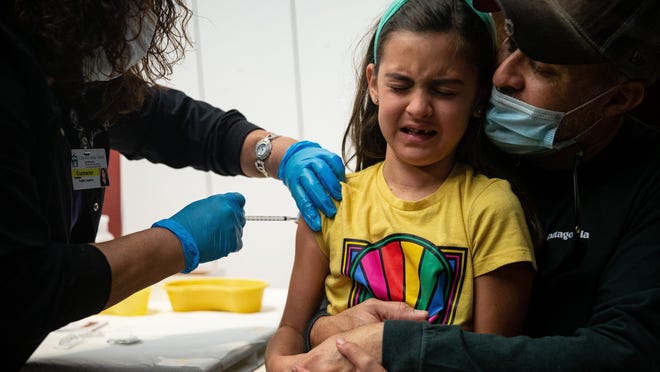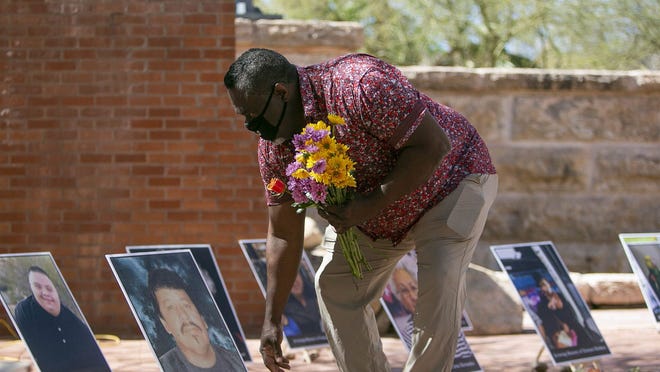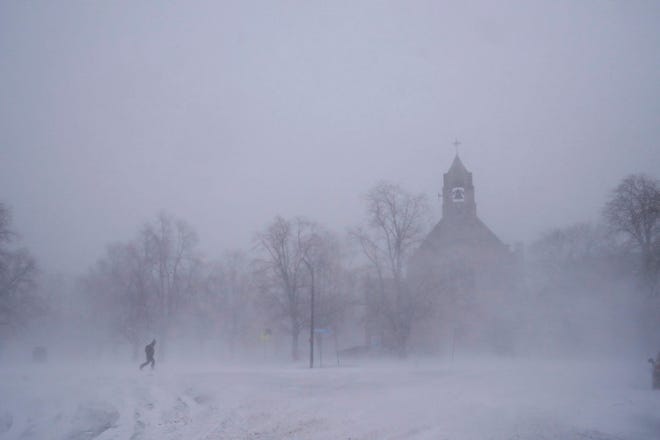
Almost 1 million children ages 5 to 11 have received their first COVID-19 shot within the first week of eligibility, the Biden administration announced last week.
But the rollout of COVID-19 shots for elementary-age children has exposed another blind spot in the nation’s efforts to address pandemic inequalities: Health systems have released little data on the racial breakdown of youth vaccinations, and community leaders fear that Black and Latino kids are falling behind.
Only a handful of states have made public data on COVID-19 vaccinations by race and age, and the Centers for Disease Control and Prevention does not compile racial breakdowns either.
In the few places that do report child COVID-19 vaccines by race, the breakdowns vary.
In Michigan, Connecticut and Washington, D.C., white children got vaccinated at much higher rates than their Black counterparts. But in New York City, white children between 13 and 17 are vaccinated at lower rates than Black, Latino and Asian kids.
In Connecticut, vaccination rates for 12- to 17-year-olds in many wealthy, predominantly white towns exceed 80%.
The Biden administration said it is spending nearly $800 million to support organizations that seek to broaden vaccine confidence among communities of color and low-income Americans.
Also in the news:
► Maine set a record high for the number of people in a hospital due to COVID-19 since the pandemic began.
► New York state is expanding COVID booster eligibility to those who "feel at risk."
► A Houston hospital has temporarily suspended a doctor for spreading false information about COVID-19 to her patients and on social media.
📈Today's numbers: The U.S. has recorded more than 47 million confirmed COVID-19 cases and more than 764,000 deaths, according to Johns Hopkins University data. Global totals: More than 253 million cases and 5.1 million deaths. More than 195 million Americans — 58.8% of the population — are fully vaccinated, according to the CDC.
📘 What we're reading: As doctors' offices and pharmacies fill appointments fill to immunize children, parents across the country are looking forward to the freedoms their kids can enjoy after getting their shot. But the question of masking — especially in schools — still remains.
Keep refreshing this page for the latest news. Want more? Sign up for USA TODAY's Coronavirus Watch newsletter to receive updates directly to your inbox, and join our Facebook group.
Pfizer licensing agreement could expand global access to antiviral pill
Drugmaker Pfizer Inc. has signed a deal with a U.N.-backed group to allow other manufacturers to make its experimental COVID-19 pill, a move that could make the treatment available to more than half of the world’s population.
In a statement issued Tuesday, Pfizer said it would grant a license for the antiviral pill to the Geneva-based Medicines Patent Pool, which would let generic drug companies produce the pill for use in 95 countries, making up about 53% of the world’s population.
The deal excludes some large countries that have suffered devastating coronavirus outbreaks. For example, while a Brazilian drug company could get a license to make the pill for export to other countries, the medicine could not be made generically for use in Brazil.
Still, health officials said the fact that the deal was struck even before Pfizer’s pill has been authorized anywhere, could help to end the pandemic quicker.
“It’s quite significant that we will be able to provide access to a drug that appears to be effective and has just been developed, to more than 4 billion people,” Esteban Burrone, head of policy at the Medicines Patent Pool, said.
— The Associated Press
Florida teacher at center of ivermectin lawsuit dies after battling COVID-19
A Palm Beach County teacher at the center of a battle to get a hospital to administer an unproven drug for her worsening COVID-19 symptoms has died from the illness.
Tamara Drock, 47, of Loxahatchee, Florida, died from complications of COVID-19 on Friday, 12 weeks after being admitted to Palm Beach Gardens Medical Center for treatment, her husband said.
As she struggled with the disease, her husband, Ryan Drock, sued the hospital last month in an attempt to require it to administer ivermectin, a drug approved to treat conditions caused by parasitic worms but not COVID-19.
The closely watched case became one of several across the country that sought to compel hospitals to administer the drug, which has gained popularity in conservative circles as a potential treatment for serious cases of the illness.
The drug, though, isn't approved by the U.S. Food and Drug Administration to treat it. The federal agency says it hasn't proved effective against COVID-19 in pre-clinical trials.
— Andrew Marra, Palm Beach Post
Contributing: The Associated Press
Source link










